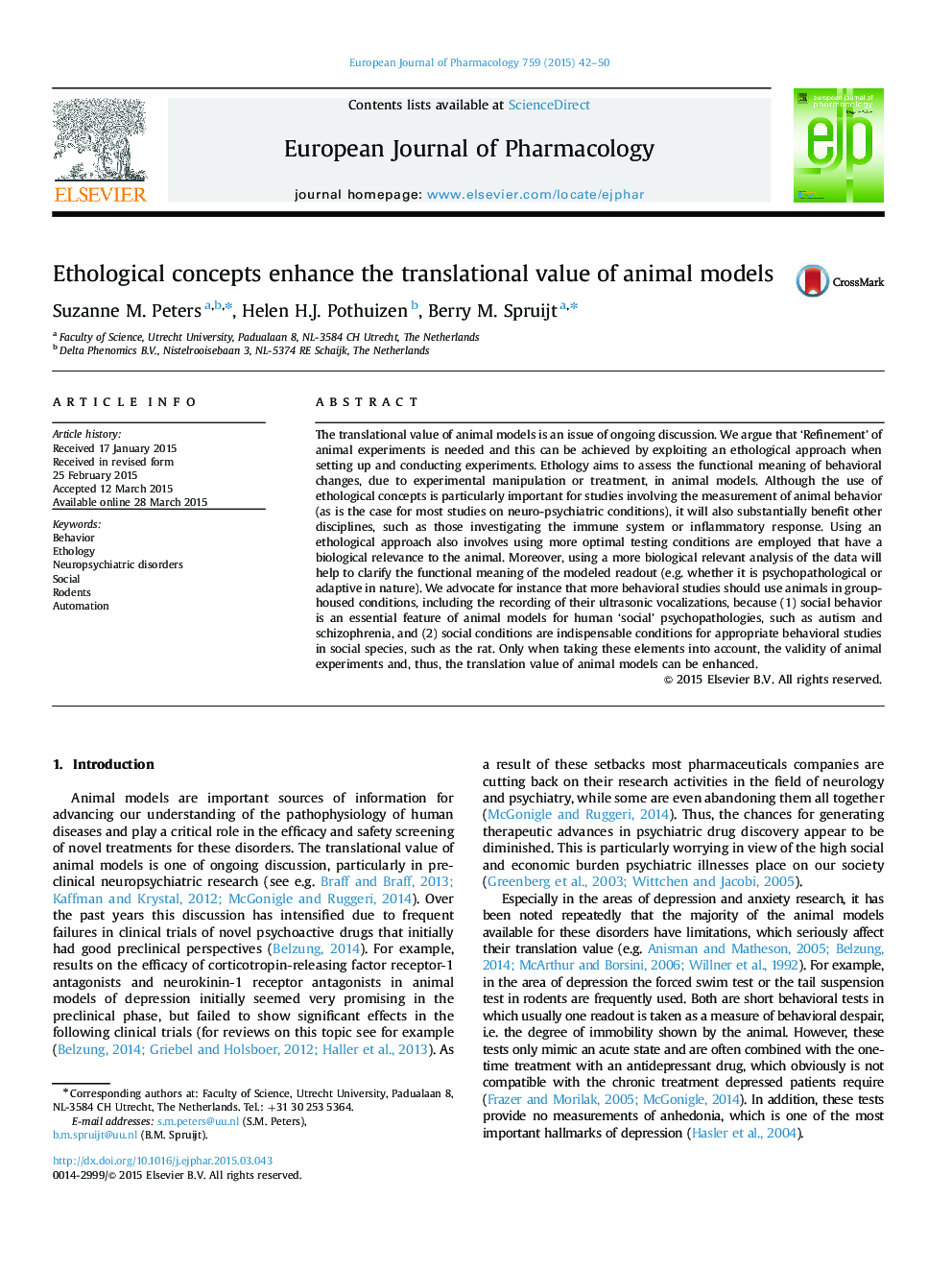| Article ID | Journal | Published Year | Pages | File Type |
|---|---|---|---|---|
| 5827264 | European Journal of Pharmacology | 2015 | 9 Pages |
Abstract
The translational value of animal models is an issue of ongoing discussion. We argue that 'Refinement' of animal experiments is needed and this can be achieved by exploiting an ethological approach when setting up and conducting experiments. Ethology aims to assess the functional meaning of behavioral changes, due to experimental manipulation or treatment, in animal models. Although the use of ethological concepts is particularly important for studies involving the measurement of animal behavior (as is the case for most studies on neuro-psychiatric conditions), it will also substantially benefit other disciplines, such as those investigating the immune system or inflammatory response. Using an ethological approach also involves using more optimal testing conditions are employed that have a biological relevance to the animal. Moreover, using a more biological relevant analysis of the data will help to clarify the functional meaning of the modeled readout (e.g. whether it is psychopathological or adaptive in nature). We advocate for instance that more behavioral studies should use animals in group-housed conditions, including the recording of their ultrasonic vocalizations, because (1) social behavior is an essential feature of animal models for human 'social' psychopathologies, such as autism and schizophrenia, and (2) social conditions are indispensable conditions for appropriate behavioral studies in social species, such as the rat. Only when taking these elements into account, the validity of animal experiments and, thus, the translation value of animal models can be enhanced.
Related Topics
Life Sciences
Neuroscience
Cellular and Molecular Neuroscience
Authors
Suzanne M. Peters, Helen H.J. Pothuizen, Berry M. Spruijt,
